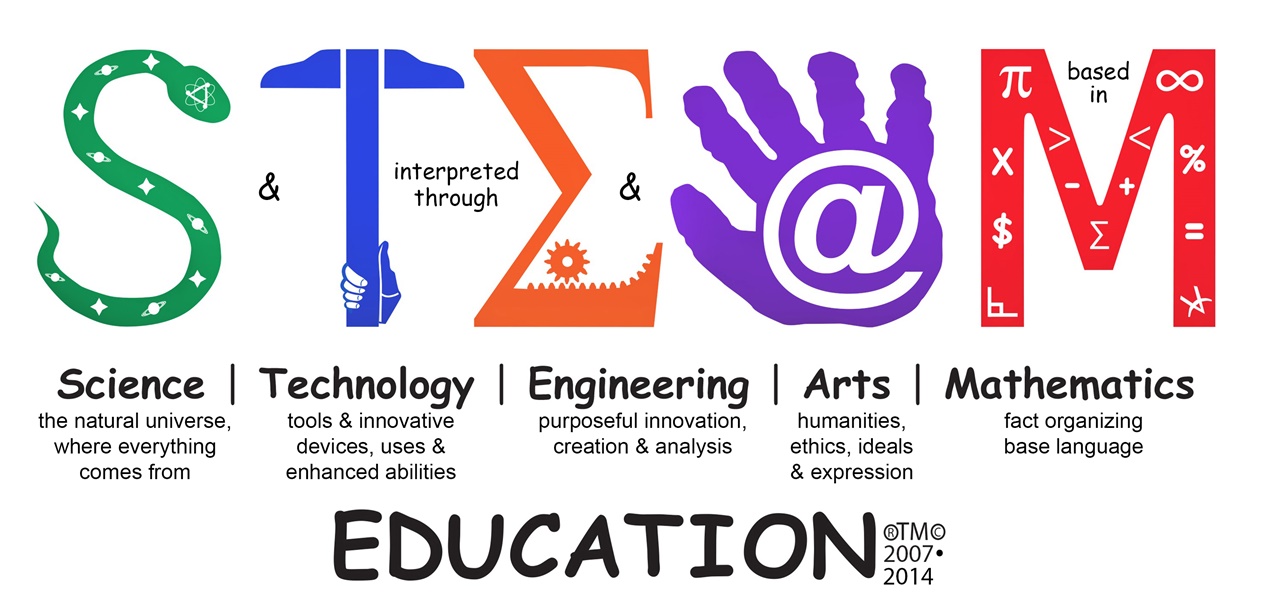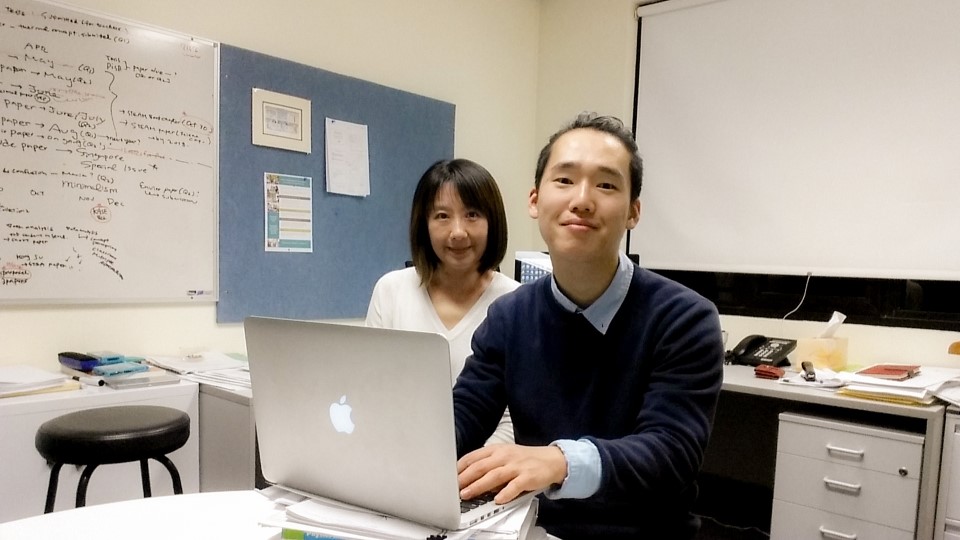 |
The STEAM (Science, Technology, Engineering, Art and Mathematics) Education Program is an inquiry based educational model being utilized in Australia, Korea and other countries. Students from fifth grade to eighth grade take part in curriculum which encourages them to explore science, while accounting for cultural and other more diverse factors. Dr. Chu Hye-eun of Macquarie University in Sydney, Australia, an alumna of Dankook University (DKU) who graduated in 1989, leads a team of researchers focusing on this innovative educational program. The Intercultural STEAM Education Program has been supported by the Department of Foreign Affairs and Trade, the Australian Government (through their grant scheme under the Australia-Korea Foundation) and has been credited with developing more effective science educational programs for young students.
Dankookian (student of DKU), Kim Jeong-hwan (sophomore, Dept. of Science Education) has also played a role in the overseas based team since last January. Kim first learned of the educational program when he attended a presentation by Dr. Chu hosted by the Department of Science Education last fall at DKU. He was so impressed with Dr. Chu’s program that he sought out an internship role with the Intercultural STEAM Project (ISP) at Macquarie University. While there was no formal internship program in place, with the support of Dr. Chu and Australia-Korea Foundation (AFK), Kim managed to work out a role for himself in the program overseas.
 |
| ▲ Dr. Chu Hye-eun and a researcher, Kim Jeong-hwan. |
The Dankook Herald (DKH) interviewed Mr. Kim and Dr. Chu to see what the ‘ISP’ is about and to learn more about Mr. Kim’s experiences in Australia.
Q. What do you think are the aims of the ISP?
Kim: The program is the most appropriate educational model for a generation immersed in the fourth industrial revolution (IR). A key factor in the latest IR is Artificial Intelligence (AI). AI has already started to affect our society, especially on the job front, so it will be more important to educate students on the meaning of human knowledge of our environment, creativity, communication skills or experiences. This distinguishes us from whatever AI can do. Since the focus of the ISP is not on fostering the development of pure scientists, but rather on growing essential scientific knowledge, it is clearly a more meaningful education for the future.
Dr. Chu: In the beginning, our research team consisted of students from different regions addressing questions about local cultural events, geographical articles and other phenomena. For example, when you are explaining wetlands, such as the Janghang wetlands, in the Demilitarized Zone of South Korea, you get to explain to students why it is so well preserved; such as historical factors like the Korean War and the truce. And here the lesson is about the Australian wetlands, where people live, so we can talk about the lifestyle and the human impact on the wetlands in Sydney. The impact on the culture, biodiversity and ecosystem can also be discussed in both countries. It could be great interdisciplinary lesson materials for students to learn science related to the geographical locations and culture.
Q. Kim, what do you feel is the most impressive factor of the ISP?
Kim: I was impressed by how the project drew out the interest in science from students and schools. Using cultural features as material helps students in Korea and Australia communicate with each other more easily, rather than just talking about science. Through this project, Australian juniors can talk about their multicultural society and their Korean counterparts can speak about their traditions. This process, before delving into scientific knowledge, motivates students to participate more actively in the classroom. I was amazed at how ISP lent a positive influence to the class atmosphere.
Q. Kim, how would you like to use your experience with the ISP in Korea?
Kim: I would like to work more on the ISP when I go back next year. Teachers in Korea have a tough time conducting STEAM lessons. Although the Korean government is providing various opportunities to develop STEAM programs, teachers find it burdensome to organize new lesson plans. I’m planning to devise a standard class guideline for running an Intercultural STEAM program in local schools. Organizing an official meeting between Korean and Australian teachers is another way to promote Intercultural STEAM education.
Q. Any advice for Dankookians who wants to have experiences in foreign countries?
Kim: It’s a shame that DKU does not have many support programs for international college internships. I could have gotten more administrative help, if I had found an official internship support program at DKU before I came to Australia, for example, office, printing, and personal wifi coverage at Macquarie University. These benefits can be given to us depending on what visa we are holding. I was fortunate because my accommodation and research costs were covered by Dr Chu’s grant supported by the Australia-Korean Foundation (AKF). So, my advice is that we should take time to find internship support programs at DKU and other organizations (e.g. Korean- Australia Foundation, KAF, in Korea).
Furthermore, we should be more active in seeking out potential projects that support our internship experience, like what I did for my internship in Australia. For example, attending seminars in areas that you are interested in is a good place to start. It will help you get high quality, first-hand information about opportunities for international internships. To do this, you should improve your foreign language proficiency. Foundations like AKF/KAF require a good level of English.
An innovative educational approach to science is needed for the next generation, because the current system is outdated and must adapt to the realities of science for the future. The ISP is a new education form for science classes, connecting separate subjects from different disciplines into one STEAM classroom. The reason why STEAM education is especially meaningful for Dankookians, is that a DKU alumni, Dr. Chu, is at the very frontier of this new approach, developing STEAM education by combining art, culture and history with science. The connection between Dr. Chu and Mr. Kim is also remarkable in that Kim’s exceptional internship began with Dr. Chu introducing her project at a DKU’s seminar. She is now expecting an MOU (Memorandum Of Understanding) to be signed between DKU and Macquarie for further internship programs, exchange of academic staff and co-supervising higher degree students. The DKH is looking forward to more active support and communication for the development of the International STEAM Project through this memorandum.
박해지, 박채리 dankookherald@gmail.com

![[Campus Magnifier] Let's Surf the Library!](/news/photo/202404/12496_1765_4143.jpg) [Campus Magnifier] Let's Surf the Library!
[Campus Magnifier] Let's Surf the Library!
![[Campus Magnifier] Let's Surf the Library!](/news/thumbnail/202404/12496_1765_4143_v150.jpg)





